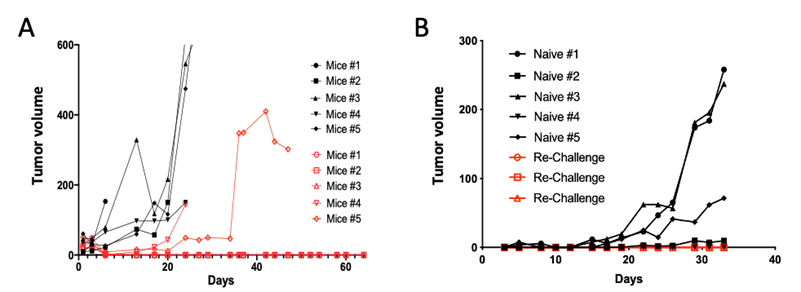Case ID:
HJF 533-19
Web Published:
1/23/2023
A technology related to using novel small molecule therapeutics for breast cancer treatment is available for licensing from HJF. These small molecules specifically inhibit LY6K, a cancer-testis oncoprotein, in cancer cells, thus providing a novel targeted therapy for breast, colorectal, and other cancers.
Applications and Advantages
- Targeted therapeutics for breast cancer, colorectal cancer, and other LY6K-positive malignancies
- In addition to directly killing tumor cells, also modulates the tumor microenvironment and induces immunity against tumor cells in vivo
Innovation Description
LY6K is a member of cancer-testis oncoprotein family. While the expression of LY6K in normal cells is mainly found in testicular germ cells, evidence shows that LY6K is expressed in a variety of tumor cells. High expression of LY6K mRNA is associated with poor survival outcomes in an array of solid cancers, including cervical, breast, head and neck, bladder, esophageal, lung, and colorectal cancer.
Scientists at the Uniformed Services University of the Health Sciences (USUHS) have discovered a number of small molecule compounds with specific, potent inhibitory effect on LY6K. Syngeneic animal studies have shown that these compounds significantly inhibit tumor growth, in addition to inducing immunity against tumor cells and reducing the number of circulating myeloid derived suppressor cells. Mechanistically, these compounds can induce tumor cell apoptosis, inhibit the protection against DNA damage response, inhibit STAT/PD-L1 pathway, and inhibit TGF-β1/Smad pathway. PD-1/PD-L1 pathway controls immune tolerance within the tumor microenvironment while the TGF-β1/ Smad pathway is important for initial tumor formation.
Synthesis protocols for these compounds are available.

Inventors
- Geeta Upadhyay, Ph.D. USUHS
Innovation Status
A family of small molecules of LY6K inhibitors have been synthesized. In vitro and in vivo studies have validated their efficacy in inhibiting tumor cell growth. Please see: Cancers 2020, 12(2), 509 .
Intellectual Property Status
Patents have been issued in Japan (2020-525903) and Canada (3082397). Patent applications have been filed in the U.S. (16/762,424), Europe (18875928.6), and Australia (2018364990). An additional patent application has been filed in the U.S. (17/924,824).